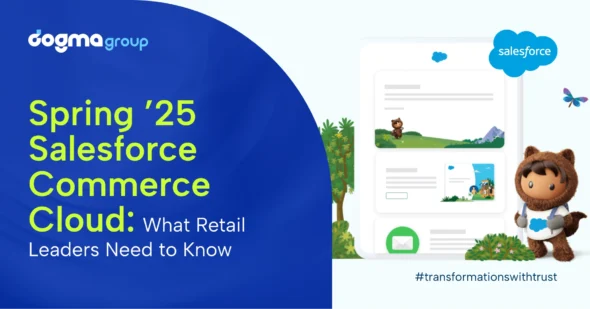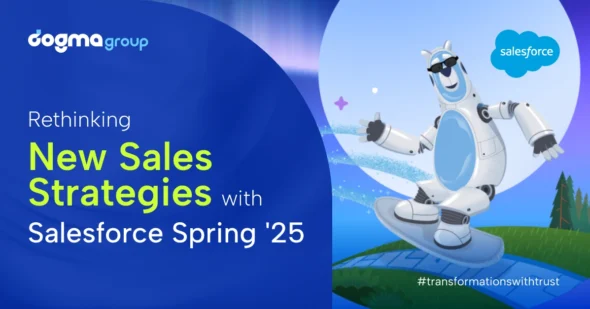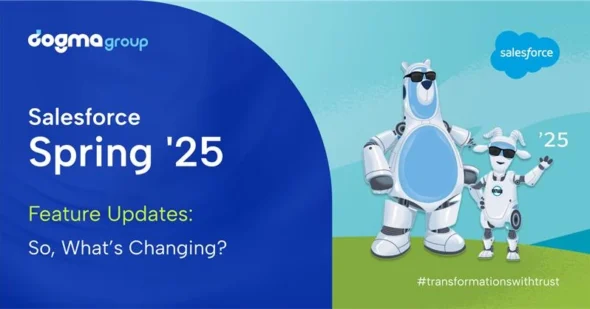“The global CRM market is predicted to grow at a 13.7 percent Compound Annual Growth Rate (CAGR) through 2021.”- Gartner
As 2021 rolls over some key CRM trends will shake up the industry as we know it.
Here are some of our top predictions for CRM solutions in the upcoming year, including AI being further embedded within CRM, rising CRM use in new markets, powerful integrations and the impact of wider tech trends on CRM.
1. AI is super-charging CRM platforms
“14% of global CIOs have already deployed AI, and it’s estimated that AI associated with CRM activities will boost global business revenue by $1.1 trillion by the end of 2021.” – Gartner’s CIO Agenda survey
As CRM tools become more intelligent, they offer more accurate insights and helps companies make better decisions. AI technology in CRM systems has been around for quite a few years now. In fact, AI is being used in much more scenarios and is transforming CRM platforms! Continuing with this trend, robotic process automation (RPA) and bots will continue to be a priority for companies as they have a clear ROI.
AI-fueled CRMs provide real-time insights into customer behavior, identifying buying patterns that turn into conversion opportunities. Two such all-in-one platforms adopting AI are – Dynamics 365 (embedded intelligence) and Salesforce (Einstein). Both these platforms help increase productivity and help you grow through advanced insights.

2. CRM growth will come from new markets
CRM software is now the largest software market in the world and the growth isn’t slouching down. In fact, CRM market is now expected to reach more than $80 billion in revenues by 2025.
According to LinkedIn State of Sales 2020, “65% of sales professionals use a CRM, and 97% consider sales technology “very important” or “important”.
This means 1/3 of the sales specialists are not using CRMs! Previously, companies were hesitant to adopt a CRM solution as they were concerned about cost, lacked resources and tech expertise. But things are changing now. As CRMs continue to become more affordable, simpler to implement and deploy, and easier to use, these objections are becoming increasingly irrelevant. Additionally, many CRM vendors also offer freemium membership models, which encourage even small businesses to adopt a CRM.
Over 50 percent of CRM buyers in 2019 were in one of four markets, namely real estate, consulting, distribution and insurance. And by the end of 2021, a great deal of new CRM growth is anticipated to come from other vertical industries that includes Healthcare, Manufacturing, Finance, and Insurance.
3. Increase in voice and conversational UI integration with CRM
“Almost all users (94%) consider voice technology easy to use and say it does more than save time – it improves their quality of life.”- Adobe’s research on voice technology.
Voice technology is critical for the evolution of SaaS tools. It’s a key factor for approachability, but it also simply makes tech more comfortable and more pleasant to use. For instance, technology like the Salesforce’s Einstein Voice Assistant is making it easier for salespeople to track, message, update and notify their teams about customer data.
At Dogma Group, we anticipate many more CRMs following suit in the next few years with voice assistant usage and supporting hardware in operational processes and interfaces.

4. Self-service via CRM
“69% of decision makers at service organisations say self-service is a major part of their service strategy.” -State of Service, Salesforce Research, 2019.
Customers want their questions answered and their problems solved quickly. The most important attribute of the customer experience is a fast response time. Self-service is no longer a “nice to have”. It’s a requirement to provide positive customer experience.
With self-service, customers get their questions clarified fast. As automation is escalating with CRM, bots are completing more contact management tasks and saving team members to focus on tasks that matter the most. Similarly, another advantage of self-service is that it saves resource cost. As customers solve the query by themselves, you will need less support staff, thus saving money. It’s definitely a win-win!
Chatbots offered by platforms like Salesforce automatically supervise prospects through marketing and sales pipelines by collecting data, probing questions, and presenting more personalised content.

5. Businesses are automating more processes using their CRM
In 2021, CRM will become more synonymous with automation. To stay connected to tech-savvy consumers, CRM needs to offer exceptional automation features. Many of the top players have invested heavily in automation. For example, Salesforce and Microsoft Dynamics 365 have placed automation at the core of their product.
Talking about Microsoft Dynamics 365, handling workflows in Dynamics 365 reduces administration overhead to create efficient processes for sales, service, marketing and other teams. For instance, you can use chatbots to communicate with customers and solve help tickets automatically or use automated email workflows and customer journeys to nurture sales prospects down the funnel.

6. The rise of ‘Social’ and ‘Mobile’ CRM
“Forrester statistics have shown that 50% of teams improved their productivity by using a mobile CRM.”
Customer service and customer experience is the heart of any business. By viewing social media and CRM together, organisations can gain a more powerful overview of what people are posting about them on social media and a more precise knowledge of brand sentiment. By interacting with customers on their preferred channels, be it WhatsApp or Facebook Messenger, brands can respond seamlessly in the way that suits their customers best! Likewise, mobile CRM software will boost your brand’s relationship with customers and have a direct impact on your sales figures!

7. CRM: not just for customer-facing teams
CRMs have been conventionally thought of as tools for sales and customer success teams. Circumstances have been remodeled – and CRMs are now a significant part of the organisation’s wider tech stack. In 2021, more companies will apprehend that CRM benefits every department: sales, marketing, finance, HR, service, operations, commerce, and more.
Companies can meet today’s challenges by bringing their customers and business together with the next generation of CRM like Microsoft Dynamics 365 and the Salesforce. Marketers can use CRMs to best understand the contacts in their pipeline and observe how CTAs convert. Likewise, customer success teams can have a 360-degree view of the customer to provide the most personalised experience. And management can access invaluable data on performance across the board.

8. Analytics features continue to be a CRM’s strength
Data quality and insights will remain the key to triumphant CRM software! Companies want the most accurate data into how their sales pipeline is performing, how happy customers are, and what’s contributing to churn.
CRMs must offer advanced analytics too! With advanced analytics at their fingertips, companies today are in the best position to recognise problems, solutions, and opportunities. Companies realise this – and are looking for efficacious analytics tools to process and report on their data in real-time. Although not all companies are set for advanced stand-alone analytics platforms just yet, more SMEs are seeing CRM analytics as a must-have!
One such CRM is, Microsoft, which has been named a leader in The Forrester Wave: Customer Analytics Technologies, Q3 2020. Similarly, according to Forrester, organisations that created data-driven cultures, saw a three-year 366% return on investment with business intelligence through Microsoft Power BI.

9. Business Intelligence and Beyond
AI in CRM will be one of the prime catalysts of intelligent CRM’s growth over the upcoming years, backed by analytics, business intelligence, and machine learning.
Talking of BI, it is one of the major CRM trends helping companies meet their strategic and global requirements. Analytics, business BI, big data, and machine learning form the pillars of today’s fastest-growing, data-driven CRM software.
Is the CRM of the future a solely robotic one? We don’t think so. For instance, when it comes to Sales AI’s role, it is to relieve the burden of manual and tiresome tasks and provide salespeople more time to focus on giving customers what they want i.e., consultative, trusted advisors — a uniquely human skill set!
10. Increase in CRM adoption as the younger generation enter workplace
28% of millennials think CRM applications are “extremely critical” to their success, compared to 18% of Generation X and 9% of Baby Boomers.
The CRM trend will grow as millennials and Gen Z continue to gain buying power and the next generations enter the workplace. In the years ahead, more teams will become tech-centric and emphasise on enhancing performance with intelligent CRM technology.
How large does your company need to be to have a CRM? If you are maintaining contact details, juggling a busy pipeline, and have leads, opportunities, and consumer data to keep track of, you can benefit from adopting a CRM.
11. CRMs need to be integrated into every other part of the business
In 2021 you should have no reason to doubt your data and wrestle with infinite lists of duplicate emails and misleading information. A well-integrated CRM solution will enable you to unify your data, get predictive insights, and achieve amazing results! Moreover, a connected CRM will help you resolve data silos, remove duplicate data, and save time.
What’s Next?
More businesses will be using technology to automate tasks whilst getting better results from the tasks they focus on. The formula for that is a powerful CRM, automated workflows, and a connected app stack where data moves smoothly between your apps.
We predict more organisations will seek cloud solutions for new corners of their business, whether as part of their CRM, a stand-alone system, or a connected tool. What do you envision for the future of CRM? Let us know in the comments below!
Author: Barsha Shrestha, Senior Marketing Executive at Dogma Group




